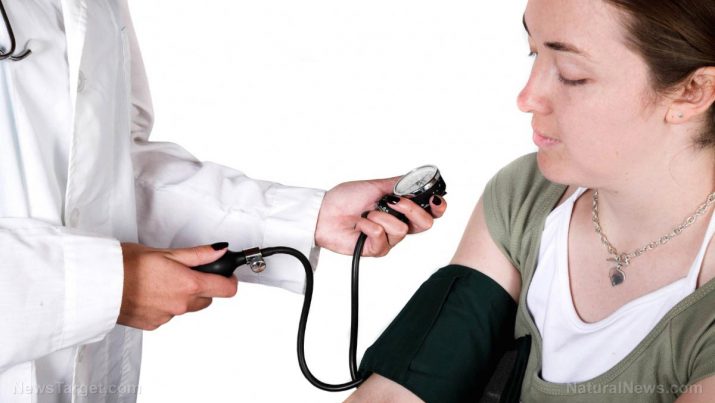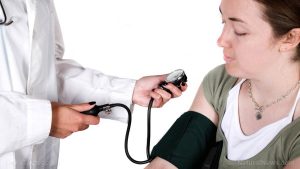
Renal artery stenosis – causes, side effects and treatments at NaturalPedia.com
Friday, June 22, 2018 by Zoey Sky
http://www.naturalpedia.com/renal-artery-stenosis-causes-side-effects-and-treatments-at-naturalpedia-com.html

Renal artery stenosis (RAS) refers to the narrowing of one or both renal arteries, which can lead to high blood pressure (hypertension).
The renal arteries are the blood vessels that send blood to the kidneys from the aorta. The aorta is the main blood vessel that carries blood from the heart to the arteries all over the body.
At least 90 percent of RAS cases occur due to atherosclerosis or the clogging, narrowing, and hardening of the renal arteries. When this happens, RAS develops as plaque (the sticky substance that consists of calcium, cholesterol, fat, and other material in the blood) builds upon the inner wall of one or both renal arteries. The plaque buildup hardens the artery wall and makes it narrow. Meanwhile, other cases of RAS are due to fibromuscular dysplasia (FMD) – the abnormal development or growth of cells on the renal artery walls. FMD can also make the blood vessels narrow.
Other conditions rarely cause RAS.

Known side effects of renal artery stenosis
Renal artery stenosis isn’t usually linked to specific side effects.
However, individuals must watch out for these possible symptoms for the condition:
- High blood pressure that responds poorly to treatment.
- Severe high blood pressure that develops before an individual turns 30 or when a person is older than 50 years old.
- The incidental discovery – often diagnosed via routine tests or tests performed for another health condition – of a small kidney compared to a normal-sized kidney on the other side.
Unilateral (one-sided) renal artery stenosis is often connected to high blood pressure. Meanwhile, bilateral (two-sided) RAS is usually linked to diminished kidney function.
Risk factors for renal artery stenosis may include:
- Age
- Diabetes
- High blood pressure
- High cholesterol levels
- Smoking
Body systems harmed by renal artery stenosis
Renal artery stenosis may cause the following complications:
- Chronic kidney disease (CKD) – This involves reduced kidney function.
- Coronary artery disease – Refers to the narrowing and hardening of the arteries that send blood to the heart.
- Kidney failure/end-stage renal disease – This may occur if a patient is receiving blood-filtering treatments/dialysis or a kidney transplant. However, this is uncommon in individuals who receive ongoing treatment for RAS.
- Peripheral vascular disease – This refers to the blockage of blood vessels which will restrict blood flow from the heart to other parts of the body, especially the legs.
- Stroke – Refers to brain damage that occurs due to poor blood flow to the brain.
Food items or nutrients that may prevent renal artery stenosis
The following foods or nutrients can help prevent renal artery stenosis and improve kidney function:
- Vitamin B-12 – Vitamin B-12, or cobalamin, is a water-soluble vitamin that is crucial for red blood cell production. Vitamin B-12 also helps carry oxygen and nutrients to the kidneys, repairs kidney damage due to free radicals, and strengthens bone marrow. Sources include beef liver, cod, duck, eggs, hard cheeses, lamb, sausage, and turkey.
- Vitamin C – A water-soluble antioxidant, vitamin C boosts the immune system and protects the kidneys from damage. The vitamin also repairs kidney damage, improves kidney function, reduces the amount of protein in urine (a common symptom of kidney disease), speeds up the healing process, and helps the body absorb iron. Sources include blackberries, blueberries, cherries, cranberries, guava, oranges, spinach, strawberries, and tomatoes.
- Vitamin D – A fat-soluble vitamin, vitamin D improves kidney function, eliminates wastes and toxins from the kidneys, and repairs kidney damage. It also reduces the risk for end-stage renal disease. Sources include beef liver, eggs, fortified yogurt, fortified orange juice, milk, and salmon.
- Vitamin E – A a fat-soluble antioxidant, vitamin E strengthens the immune system and protects the kidneys from harmful free radicals that may interfere with proper kidney function. Sources include almonds, broccoli, corn oil, mangoes, peanut butter, spinach, and tomatoes.
Treatments, management plans for renal artery stenosis
Treatment for renal artery stenosis includes medications and lifestyle changes. Certain medical procedures may also be required for certain cases of the disease.
Patients can be prescribed medications that will help relax blood vessels, so they don’t narrow. Options include:
- Alpha-beta-blockers and beta-blockers (used to manage blood vessel dilation.)
- Angiotensin II receptor blockers (ARBs)
- Angiotensin-converting enzyme (ACE) inhibitors
- Calcium channel blockers
Aside from medications for RAS and other underlying conditions, patients can benefit from lifestyle changes such as:
- Exercising regularly
- Getting enough sleep
- Limiting alcohol and caffeine intake
- Maintaining a healthy weight
- Minimizing sodium intake
- Quitting smoking
- Stress management
Where to learn more
- 14 Foods & Herbs To Cleanse Blood Toxins Naturally
- Forget your meds? Statin drugs found to cause memory impairment
- Kidney Health: 16 Home Remedy And Natural Cures For Kidney Pain and Infection
- Prevent, and even reverse, cardiovascular disease with pomegranate – it cleans your arteries
- Protect your heart with CoQ10 and vitamin B6: Research
Summary
Renal artery stenosis (RAS) refers to the narrowing of one or both renal arteries. RAS can also cause high blood pressure.
Renal artery stenosis may cause side effects like high blood pressure that responds poorly to treatment or severe high blood pressure that develops before an individual turns 30 or when a person is older than 50.
Renal artery stenosis may cause complications like chronic kidney disease, coronary artery disease, kidney failure/end-stage renal disease, peripheral vascular disease, and stroke.
Vitamins B-12, C, D, and E can help prevent renal artery stenosis and improve kidney function.
Treatment for renal artery stenosis includes medications and lifestyle changes. Certain medical procedures may also be required for certain cases.
Sources include:
Tagged Under: Tags: renal artery stenosis





